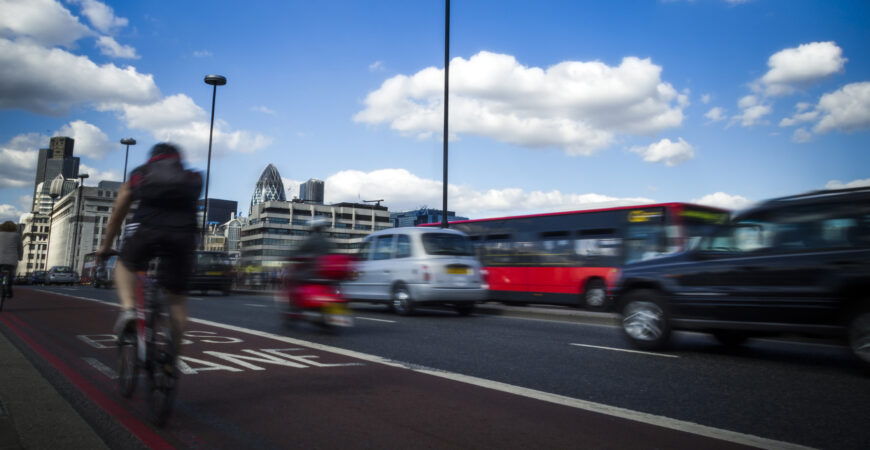NEW Direct Vision Standard ‘Progressive Safe System’ – Update Announced
Transport for London (TfL) has announced that from October 2024, Heavy Goods Vehicles (HGVs) weighing over 12 tonnes will be required to have a minimum three-star rating or be equipped with a range of safety systems to operate in Greater London. The decision was made by the London Councils Transport and Environment Committee, paving the way for changes to the capital’s Direct Vision Standard (DVS) based HGV safety permit scheme.
Under the NEW Direct Vision Standard regulations, HGVs must meet the three-star DVS rating or install the Progressive Safe System (PSS), a set of updated safety features. The objective of these measures is to enhance road safety and reduce accidents involving HGVs. TfL has also outlined a three-month grace period for operators to comply with the new requirements, with a possibility of further extensions being considered in June 2024.
Mayor Philip Glanville, London Councils’ executive lead for climate change, transport, and environment, emphasised the commitment to prioritising the safety of road users and achieving the Vision Zero goal of zero deaths on London’s roads. The introduction of the DVS and safety permit scheme has already shown positive results, with fatal collisions related to vision decreasing by 50% between 2018 and 2021.
Since the launch of the HGV safety permit scheme in 2019, over 253,000 safety permits have been issued. This includes nearly 6,000 vehicles with a five-star rating, indicating the highest levels of direct vision. Additionally, more than 151,000 zero-star HGVs have been retrofitted with safety systems. The compliance rate for the scheme is currently above 94%, and hauliers are incorporating DVS requirements into their future purchasing decisions.
The updated safety measures, known as the Progressive Safe System, have been developed based on consultations and reflect the latest equipment and technologies available in the market. DVS has given a summary of the Progressive Safe System
Summary of the NEW Direct Vision Standard Progressive Safe System
Improving indirect vision
Camera Monitoring Systems (CMS) guidance will be updated to allow the use of both systems. This will give the driver a wider field of vision and reduce the cognitive workload.
CMS fitted on vehicles must eliminate any remaining blind spots. This provides a visual alert of an approaching vulnerable road user and prevents collisions in the blind spot area.
Sensors must ensure full coverage down the nearside of rigid vehicles to detect vulnerable road users. They must not activate in relation to roadside furniture or stationary vehicles. This aims to prevent left-turn collisions. For articulated trailers, sensors must be fitted to the front tractor unit but are recommended for the trailer where possible.
Moving Off Information Systems (MOIS) sensors must be fitted to the front of a vehicle to prevent collisions at the frontal blind spot zone when a vehicle moves off from rest.
Warning vulnerable road users of intended manoeuvres
Audio warnings must be fitted to all vehicles, including those with a left-hand drive to ensure all vehicles have the ability to warn of an intended manoeuvre.
Warning signage requirements remain unchanged.
Minimising the physical impact of a hazard
Sideguard requirements remain unchanged
TfL conducted a recent consultation, which demonstrated support for the DVS principles, safety permit scheme, and the NEW Direct Vision Standard Progressive Safe System. As a result, TfL modified the proposal to make sensors for articulated vehicle trailers a recommendation rather than a requirement. TfL will collaborate with the industry to assess readiness for implementing the Progressive Safe System and decide, in consultation with London Councils, whether an extension to the grace period is necessary.
To ensure eligibility, operators of existing vehicles with zero, one, or two-star ratings must register their vehicles with TfL and provide evidence of an appointment with fitters to install the PSS equipment before January 31, 2025. However, this arrangement does not apply to operators applying for new vehicle safety permits after October 28, 2024.
TfL also plans to make user experience improvements to optimize the HGV safety permit application process, including the introduction of a tool for operators to check their vehicles’ permits.
Christina Calderato, TfL’s director of transport strategy and policy, reiterated the commitment to road safety and Vision Zero. She emphasized the significance of prioritizing safety in vehicle design and highlighted the substantial improvement achieved through the world-first Direct Vision Standard, which has reduced fatal collisions related to vision by 75% between 2018 and 2023.
The implementation of stricter safety measures for HGVs in London aims to further enhance road safety, protect vulnerable road users, and move closer to eliminating fatalities and serious injuries from the city’s transport network.
For more information on the NEW Direct Vision Standard and to speak to one of our team about how we can help your fleet achieve any new requirements contact us today. With healthy stock levels, quick delivery and nationwide fitting capabilities, choose EchoMaster for all your vehicle fleet safety requirements.
To keep up to date with more industry news, new product announcements, offers and promotions subscribe to our newsletter – CLICK HERE

